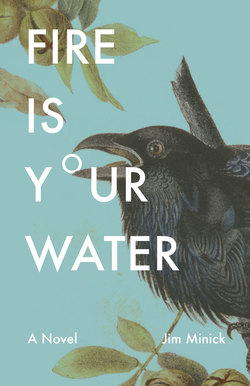Читать книгу Fire Is Your Water - Jim Minick - Страница 12
На сайте Литреса книга снята с продажи.
Оглавление2
By the time the first men and their fire trucks arrived, the tin on the barn roof curled and flapped in the heat. Firelight reflected off their helmets as they rushed around the trucks, connecting hoses, opening valves, heavy boots slogging through mud. Three men charged forward with the long snake of hose, and the lead one opened the valve to release a heavy stream of water. Another fire company arrived, and soon a second team joined the first. But the tanks quickly ran dry, and heat forced the men to seek shelter behind a truck. The temperature became so intense the first crew had to move its engine back another fifty feet.
A half-hour later, two more fire companies turned into the lane. As soon as they saw the fire, the men turned off the sirens. The barn was lost, they knew, and all they could do was protect the other buildings.
Neighbors came and asked how it started or where Peter was. The older men saw calves and chickens in the alfalfa where Kate had driven them, and they sent boys out to check on these animals. Later, these neighbors would fashion a pen in the tractor shed, but now they simply leaned against their pickups and watched the blaze. Mostly they stayed silent, or they talked in low voices about the animals. They could see the milkers down in the meadow, the raw sores where a few were burned. They wondered if they’d have to be put down, or if Ada or Mark Hoover could heal them. They knew Ada and Mark could take out fire by using Bible verses and old chants for healing burns. But sometimes the burns were too severe. And not everyone believed.
Others joined the watchers—women and children, relatives and friends. They heard the sirens or saw the smoke from five miles away. When new people arrived, they greeted each other, their bodies already turning toward the fire. The women touched their faces or pulled their children close. The men spat and swore under their breath. All of them grew silent in their watching.
Light from the fire made their faces glow, and as day fell away to darkness, firelight cast strange shadows among them. Even when the watchers stilled, their shadows shifted and moved, twisting away from the smoke and blaze and the fire trucks’ revolving lights. Night’s cool air touched their backs, and women drew collars tight against their chins. The men shifted, glanced at each other, and watched another fire truck pull in. For a moment, their shadows disappeared in the truck’s headlights. Their eyes followed the firemen as they ran new lines, stumbling in their heavy gear to open valves, the water disappearing into the fire.
As the watchers stood in the shadows, they considered how much they could spare to give to the Franklins to help them through the coming year. The entire world of this one place—all its animals and people and plants—everything passed through this building’s doors. The barn was a bank of hay and wheat, corn and oats, now all gone.
But mostly, the watchers considered their own luck, their own good fortune. The women whispered quiet prayers. In their pockets, the men touched a buckeye, fingering the smooth nut, wearing away its ridges.
Like a mighty, anchored ship, the barn slowly sank. First the roof fell, then the sides, each collapse creating a shower of sparks hurling upward into the night. One side leaned and fell outward, and the men rushed away to return with their hoses to douse the blackened boards. Each collapse exposed the bones and ribs of the barn, mortised posts and beams all pegged together more than a hundred years ago. Those beams charred and ignited also, and soon they became wicks for this immense and hungry fire.
